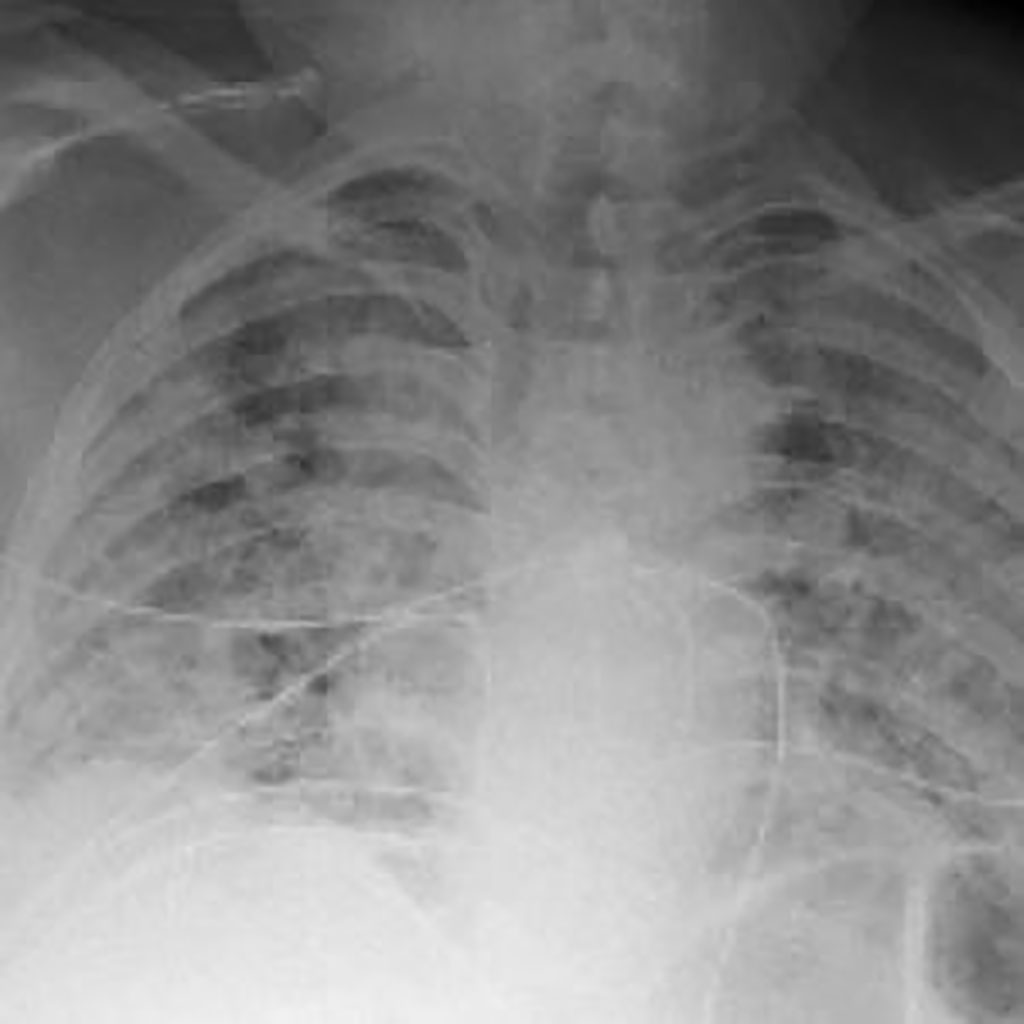AI Tool Uses Chest X-Rays to Identify COVID-19 Patients Likely to Develop Life-Threatening Complications with 80% Accuracy
By MedImaging International staff writers
Posted on 13 May 2021
Trained to see patterns by analyzing thousands of chest X-rays, a computer program predicted with up to 80% accuracy which patients with COVID-19 would develop life-threatening complications within four days.Posted on 13 May 2021
Developed by researchers at NYU Grossman School of Medicine (New York, NY, USA), the program used several hundred gigabytes of data gleaned from 5,224 chest X-rays taken from 2,943 seriously ill patients infected with SARS-CoV-2, the virus behind the infections.

Illustration
The authors of the study cited the “pressing need” for the ability to quickly predict which patients with COVID-19 are likely to have lethal complications so that treatment resources can best be matched to those at increased risk. For reasons not yet fully understood, the health of some patients with the disease suddenly worsens, requires intensive care, and increases their chances of dying. In a bid to address this need, the NYU Langone team fed not only X-ray information into their computer analysis, but also patients’ age, race, and gender, along with several vital signs and laboratory test results, including weight, body temperature, and blood immune cell levels. Also factored into their mathematical models, which can learn from examples, was the need for a mechanical ventilator and whether each patient survived (2,405) or died (538) from their infections.
Researchers then tested the predictive value of the software tool on 770 chest X-rays from 718 other patients admitted for COVID-19 through the emergency department at NYU Langone hospitals from March 3 to June 28, 2020. The computer program accurately predicted four out of five infected patients who required intensive care and mechanical ventilation and/or died within four days of admission.
A major advantage to machine intelligence programs such as this is that its accuracy can be tracked, updated, and improved with more data. The team plans to add more patient information as it becomes available and is also evaluating what additional clinical test results could be used to improve their test model. As part of further research, the team hopes to soon deploy NYU Langone’s COVID-19 classification test to emergency physicians and radiologists and is working with physicians to draft clinical guidelines for its use.
“Emergency room physicians and radiologists need effective tools like our program to quickly identify those patients with COVID-19 whose condition is most likely to deteriorate quickly so that healthcare providers can monitor them more closely and intervene earlier,” said study co-lead investigator Farah Shamout, PhD, an assistant professor in computer engineering at New York University’s campus in Abu Dhabi.
“We believe that our COVID-19 classification test represents the largest application of artificial intelligence in radiology to address some of the most urgent needs of patients and caregivers during the pandemic,” added Yiqiu “Artie” Shen, MS, a doctoral student at the NYU Center for Data Science.
Related Links:
NYU Grossman School of Medicine














